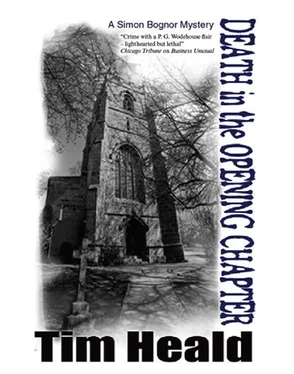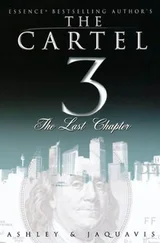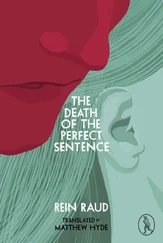Tim Heald - Death in the opening chapter
Здесь есть возможность читать онлайн «Tim Heald - Death in the opening chapter» весь текст электронной книги совершенно бесплатно (целиком полную версию без сокращений). В некоторых случаях можно слушать аудио, скачать через торрент в формате fb2 и присутствует краткое содержание. Жанр: Криминальный детектив, на английском языке. Описание произведения, (предисловие) а так же отзывы посетителей доступны на портале библиотеки ЛибКат.
- Название:Death in the opening chapter
- Автор:
- Жанр:
- Год:неизвестен
- ISBN:нет данных
- Рейтинг книги:5 / 5. Голосов: 1
-
Избранное:Добавить в избранное
- Отзывы:
-
Ваша оценка:
- 100
- 1
- 2
- 3
- 4
- 5
Death in the opening chapter: краткое содержание, описание и аннотация
Предлагаем к чтению аннотацию, описание, краткое содержание или предисловие (зависит от того, что написал сам автор книги «Death in the opening chapter»). Если вы не нашли необходимую информацию о книге — напишите в комментариях, мы постараемся отыскать её.
Death in the opening chapter — читать онлайн бесплатно полную книгу (весь текст) целиком
Ниже представлен текст книги, разбитый по страницам. Система сохранения места последней прочитанной страницы, позволяет с удобством читать онлайн бесплатно книгу «Death in the opening chapter», без необходимости каждый раз заново искать на чём Вы остановились. Поставьте закладку, и сможете в любой момент перейти на страницу, на которой закончили чтение.
Интервал:
Закладка:
‘Would she have known Sebastian?’
‘Dunno. Probably not. Mother must have done, though. Sebby preached about her. Main reason she left. You could say. Sex and alcohol. She was for sin and Sebastian was against it. They were on opposite sides of the moral divide. The vicar won. People like him always do. It’s a matter of morality, which means a question of hypocrisy. That means that in private they approve of people like Vicenza Book’s mother; Dolly’s ma. In public, though, they side with the vicar. The devil has all the best tunes, but people don’t like to be seen dancing to them.’
He poured himself another Scotch, ignored the others, and earned a sharp and censorious glance from his wife.
‘Much better now that the Kraut chef’s in charge,’ he said. ‘Bloody awful scoff, but neat and gets a good press.’
‘Swiss,’ said Camilla. ‘Gunther is Swiss.’
‘Swiss, piss,’ said Sir Branwell laughing. ‘Typical Swiss. Neat, tidy and ultimately unimaginative. All cuckoo clocks and yodelling.’
‘That’s the Austrians,’ said Bognor. ‘They invented the cuckoo clock and taught the world to yodel.’
‘Swiss,’ said Sir Branwell very seriously. ‘Camilla’s quite right. Gunther Battenburg is Swiss. Nothing to do with cake or the royal family. But say what you like about the Swiss, they’re very neat and tidy. Their trains run on time and I don’t believe the Austrians had anything to do with cuckoo clocks or yodelling. That was the Swiss. Orson Welles said so. And he was spouting the words of Graham Greene. He should know.’
Bognor frowned. He was not following his host’s train of thought.
‘I may not enjoy his grub,’ said Sir Branwell, ‘but I applaud his neatness. Everything’s always very tidy. No cause for complaint.’
‘I didn’t think a lot of the dinner was terribly good,’ said Bognor. ‘Though, I quite liked the emu. Vicenza Book thought it was chicken.’
‘She would,’ said Sir Branwell. ‘Part of the problem with that trollop,’ he continued, ‘is that she’s a mess. No concept of straight lines, order, cleanliness, places and people being in the right place at the right time. Say what you like about the services, they always have a timetable, and everyone adheres to it. Too much civilian life is chaotic.’
Bognor, who enjoyed chaos, which was usually more apparent than real, did not demur, even though he knew that his old friend’s knowledge of military life was perfunctory and almost entirely vicarious. On the other hand, the affairs of the Lord Lieutenancy were regulated with a precision which owed much to the armed forces, if not to the Swiss.
‘So, I do most profoundly hope,’ said Sir Branwell, ‘that you can bring something Swiss to the current investigations. If you see what I mean. And by Swiss, I don’t mean cheese with holes in it, but clocks, clockwork, tickety-boo.’ And he tapped his nose.
‘The brigadier doesn’t have a satisfactory alibi,’ said Bognor, ‘but then hardly anybody does. It’s going to introduce a bit of a mess into the proceedings, like it or not. On the other hand, he doesn’t have a discernible motive, so I’m inclined to rule him out.’
‘Talked to the pathologist?’ The squire was full of surprises. Bognor suspected he didn’t know what a pathologist was, except for what he had gleaned from TV. This meant a sexy girl in a white coat with a scalpel. His own experience with pathologists was not similar. In his experience, they were slightly desiccated males who felt they knew best. On the whole, they tended to tell you what you knew already, but attached much importance to their findings and believed they solved everything. This was not a view Bognor shared.
‘The pathologist will tell me that death was by hanging; that the rope and the stool came from the vestry; and that the removal of the stool precipitated death. The pathologist’s report will not, however, tell me who tied the knot nor who kicked the stool.’
‘Fingerprints?’ enquired Sir Branwell. ‘DNA?’
‘Possible,’ said Bognor. ‘But even if so, they won’t stand up in court. The probability is that Sebastian knew where the rope and the stool were, that he tied the requisite knots and kicked the stool from under him, himself. But there is always the possibility that another party was involved. Or parties. The two questions that need answering are: “Who tied the knot?” and “Who kicked the stool?”’
‘Quite,’ echoed Sir Branwell.
‘I think,’ said Monica, ‘it’s time we all went to bed.’
In situations such as this, Lady Bognor was not to be gainsayed.
‘I quite agree,’ said Lady Fludd. ‘It’s quite late; we’ve all had more than enough to drink and we have a heavy day tomorrow.’
The two men exchanged rheumy glances, but said nothing, simply drained their glasses, and stood unsteadily.
They both knew far better than to argue.
SEVENTEEN
The pathologist was male, of a certain age, sexless and self-important. All this accorded with Bognor’s expectations. The pathologist was, naturally, convinced that his report would provide all the answers anyone could possibly want. That, too, was in line with what Bognor expected. Nothing untoward, nothing helpful. Boxes were ticked, protocol followed, and if there had to be a post-mortem examination of a post-mortem examination, so to speak, then everyone would be satisfied that this section of the book had been followed to the letter.
‘The time of death was some time between five and seven,’ said the pathologist.
Bognor nodded but said nothing. He knew that already but he wasn’t saying anything. It made sense for the pathologist to feel that he was providing special information, to which he alone was privy, and could not be discovered by any other means. ‘The cause of death was strangulation. This was achieved by hanging by the neck, and the weapon was a spare rope for one of the bells. It almost certainly came from the vestry, as did the stool, which was removed, leaving the dead man dangling from the rafter around which the rope was fixed by means of a bowline knot. The knot around the neck was a common or garden reef.’
‘And was the stool removed by the deceased or a third party.’
‘Impossible to say.’ The pathologist still appeared self-satisfied and portentous, as if this failure to identify the person who had removed the stool was itself something which could only be ascertained by some arcane process, to which he alone was privy.
‘And how would you say the stool was toppled. It was on its side was it not?’
‘Correct,’ said the pathologist. ‘I would judge that the stool was kicked over either by the deceased, using his own feet, or by a third party. We could find no trace of fingerprints or of anything that would show up in DNA testing. My guess is that the stool was knocked over by a shoe or a boot. It’s impossible to say, and shoes and boots leave no trace.’
‘Guess?’ said Bognor. ‘No trace? That doesn’t sound the sort of scientific evidence that will stand up in a court of law.’
The pathologist shifted from one foot to another. A certain sort of novelist would have said this was a symptom of unease, but the pathologist still seemed very pleased with himself and his evidence, though Bognor could not see why. He seldom could.
‘No,’ said the pathologist, ‘we can only go so far.’
‘I thought pathology was an exact science,’ said Bognor mischievously.
‘Only as far as it’s allowed to be scientific. The moment we enter the realm of speculation, we’re as tentative and unrigorous as everyone else.’
‘My view,’ said Bognor evenly, ‘is that pathology is always as tentative and unrigorous as everyone else. However, because it is possible to dress up your proceedings in formulaic scientific language, it is possible for you to fool people. You don’t, however, fool me. I also think that there is a natural ghoulishness in a lot of laymen, which is obsessed with knives and body parts, dissection and what passes for forensics. I believe much of what you do to be so much fashionable mumbo-jumbo, but I am not usually allowed to say so.’
Читать дальшеИнтервал:
Закладка:
Похожие книги на «Death in the opening chapter»
Представляем Вашему вниманию похожие книги на «Death in the opening chapter» списком для выбора. Мы отобрали схожую по названию и смыслу литературу в надежде предоставить читателям больше вариантов отыскать новые, интересные, ещё непрочитанные произведения.
Обсуждение, отзывы о книге «Death in the opening chapter» и просто собственные мнения читателей. Оставьте ваши комментарии, напишите, что Вы думаете о произведении, его смысле или главных героях. Укажите что конкретно понравилось, а что нет, и почему Вы так считаете.












